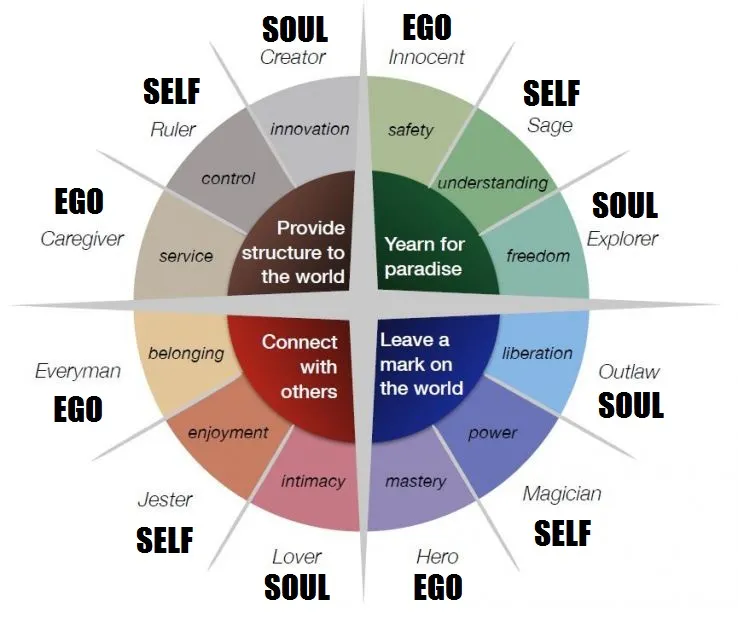
I’ve harbored a deep fascination with the concept of archetypes, not merely from a theoretical standpoint as Carl Jung proposed, but more so in their practical application within the realm of business and organizational change. My interest is also piqued by William Shakespeare’s assertion that “all the world’s a stage, and all the men and women merely players;” it resonates with the idea that we each craft our narratives, embodying various roles within the workplace, casting ourselves and others into predefined roles such as hero, victim, or villain, reminiscent of the drama triangle.
However, this approach has its limitations, especially when an individual is cast in a role that neither they nor their peers recognize. This misalignment can lead to existential conflict, marked by a kind of transference where projecting a certain role onto someone becomes crucial for maintaining one’s identity. When these perceptions fail to align, it results in anxiety and a perceived threat to one’s identity, role or sense of belonging.
This misalignment is a significant contributor to organizational conflict and resistance to change. It stems from a discord between one’s perception of how the world should be and the reality of change. This gap necessitates a choice: either to change the world around us or to transform ourselves to achieve a new harmony. This process signifies the initiation into growth, transference, transcendence, and ultimately, transformation.
For change managers, understanding these dynamics is critical. It involves recognizing individual and collective perspectives that shape roles, narratives, and the organizational context—essentially, the container within which these interactions occur. Thus, appreciating the theories of archetypes and the practice of identifying personality, role, ego, and persona in organizational settings is invaluable for facilitating meaningful change.
This perspective not only enhances our understanding of the human aspects within organizational change but also equips change managers with the tools to navigate and mitigate conflicts, fostering an environment conducive to growth and transformation.
This is a great resource
https://conorneill.com/2018/04/21/understanding-personality-the-12-jungian-archetypes/
If this discussion feels somewhat abstract, I invite you to explore a link that presents various heroes from movies, illustrating how they and their fellow cast members embody distinct roles crucial for the narrative’s success. Just as these roles are essential for a film’s story to resonate, our lives are similarly shaped by narratives. We find ourselves naturally gravitating towards fulfilling specific roles within these stories, guiding not only our actions but also our interactions with others, as we each navigate our unique journey.
Archetypes in films
https://musingsandbooks.files.wordpress.com/2015/03/heromythfull.jpg
Tim HJ Rogers
Consult | CoCreate | Deliver
I support people and teams to grow, perform and succeed unlocking potential as a partner Consultant, Coach, Project and Change Manager. Together we can deliver projects and change, and improve the confidence, capacity, drive and desire of the people I work with.
ICF Trained Coach | MBA Management Consultant | PRINCE2 Project Manager, Agile Scrum Master | AMPG Change Practitioner | Mediation Practitioner | BeTheBusiness Mentor | 4 x GB Gold Medalist | First Aid for Mental Health | Certificate in Applied Therapeutic Skills
#people #process #performance #projects #programmes #pmo #change #processimprovement #projectmanagement #changemanagement #workshops #mediation #coach #icfcoach #mentor #facilitation #training #jersey #channelislands
